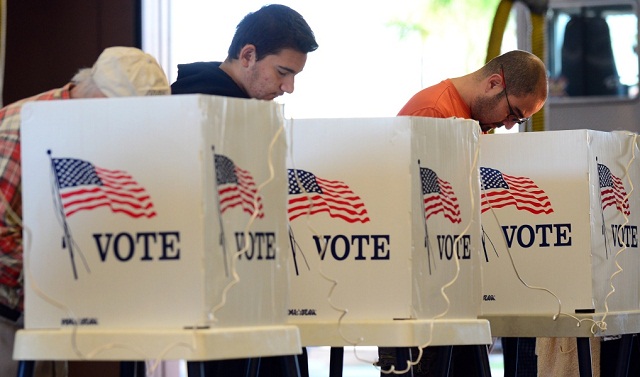
America’s ideals of freedom, democracy, and justice for all are now under open attack
COMMENT | JOSEPH E. STIGLITZ | The United States has long held itself up as a bastion of democracy. It has promoted democracy around the world. It fought, at great cost, for democracy against fascism in Europe during World War II. Now the fight has come home.
America’s credentials as a democracy were always slightly blemished. The U.S. was founded as a representative democracy, but only a small fraction of its citizens – mostly white male property owners – were eligible to vote. After the abolition of slavery, the white people of America’s South struggled for nearly a century to keep African-Americans from voting, using poll taxes and literacy tests, for example, to make casting a ballot inaccessible to the poor. Their voting rights were guaranteed nearly a half-century after the enfranchisement of women in 1920.
Democracies rightly constrain majority domination, which is why they enshrine certain basic rights that cannot be denied. But in the U.S., this has been turned on its head. The minority is dominating the majority, with little regard for their political and economic rights. A majority of Americans want gun control, an increase in the minimum wage, guaranteed access to health insurance, and better regulation of the banks that brought on the 2008 crisis. Yet all of these goals seem unattainable.
Part of the reason for that is rooted in the U.S. Constitution. Two of the three presidents elected in this century assumed office despite having lost the popular vote. Were it not for the Electoral College, included in the Constitution at the insistence of the less populous slave states, Al Gore would have become president in 2000, and Hillary Clinton in 2016.
But the Republican Party’s reliance on voter suppression, gerrymandering, and similar efforts at electoral manipulation have also contributed to ensuring that the will of the majority is thwarted. The party’s approach is perhaps understandable: after all, shifting demographics have put the Republicans at an electoral disadvantage. A majority of Americans will soon be nonwhite, and a twenty-first-century world and economy cannot be reconciled with a male-dominated society. And the urban areas where the majority of Americans live, whether in the North or the South, have learned the value of diversity.
Voters in these areas of growth and dynamism have also seen the role that government can and must play to bring about shared prosperity. They have abandoned the shibboleths of the past, sometimes almost overnight. In a democratic society, therefore, the only way a minority – whether it’s large corporations trying to exploit workers and consumers, banks trying to exploit borrowers, or those mired in the past trying to recreate a bygone world – can retain their economic and political dominance is by undermining democracy itself.
That strategy includes many tactics. Aside from supporting selective immigration, Republican officials have sought to prevent likely Democratic voters from registering. Many Republican-controlled states have instituted burdensome identification requirements at polling stations. And some local governments have purged such voters from electoral rolls, reduced the number of polling stations, or shortened their hours of operation.
It’s striking how difficult America makes it to vote, to exercise the basic right of citizenship. The U.S. is one of the few democracies to hold elections on a workday, rather than a Sunday, obviously making it more difficult for working people to vote. This contrasts with other democracies, like Australia, where citizens are required to vote, or with some states, like Oregon, which have made it easier to vote through mail-in ballots.
Moreover, a system of mass incarceration that continues to target African-Americans has historically served a triple function. Aside from providing cheap labour and driving down wages (even today, as Columbia University’s Michael Poyker points out, some 5% of America’s industrial output is produced by inmates), this system was designed to deny those convicted of a crime the right to vote.
When all else fails, Republicans seek to tie elected governments’ hands, in part by packing the federal courts with judges who can be counted on to strike down policies that their donors and supporters oppose. Important recent books, such as Duke University historian Nancy MacLean’s `Democracy in Chains’ and University of Oregon political scientist Gordon Lafer’s `The One Percent Solution’, trace the intellectual origins and organisational mechanisms of the Republicans’ assault on democracy.
America’s ideals of freedom, democracy, and justice for all may never have been fully realized, but now they are under open attack. Democracy has become rule of, by, and for the few; and justice for all is available to all who are white and can afford it.
Of course, this is not just an American problem. All over the world, strongmen with little commitment to democracy have taken power: Recep Tayyip Erdoğan in Turkey, Viktor Orbán in Hungary, Jarosław Kaczyński in Poland, and now Jair Bolsonaro in Brazil. Some, looking at the past, say that this, too, will pass. Think of all the nasty dictators in the 1930s. Think of those, like Salazar in Portugal and Franco in Spain, who survived into the post-World War II era. They are all gone now.
A moment’s reflection, though, should remind us of those dictatorships’ human toll. And Americans must confront the fact that their president, Donald Trump, has been aiding and abetting today’s crop of budding despots.
That is only one of the many reasons why it is so important this year to have a Democratic Congress that can provide a check against Trump’s authoritarian tendencies, and to elect state and local officials who will restore the vote to all those entitled to it. Democracy is under attack, and we all have an obligation to do what we can – wherever we are – to save it.
*****
Joseph E. Stiglitz is the winner of the 2001 Nobel Memorial Prize in Economic Sciences. His most recent book is Globalization and its Discontents Revisited: Anti-Globalization in the Era of Trump.
Copyright: Project Syndicate, 2018.
 The Independent Uganda: You get the Truth we Pay the Price
The Independent Uganda: You get the Truth we Pay the Price


